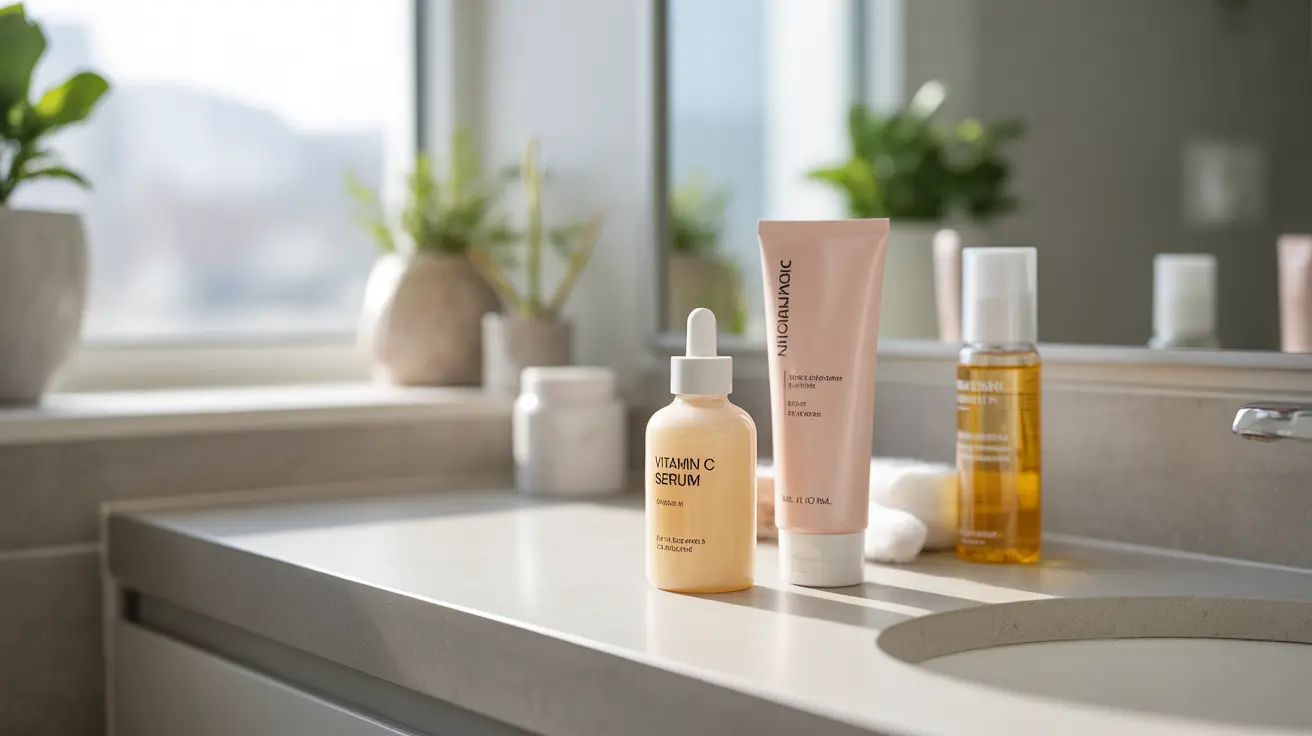Achieving an even skin tone is a common beauty goal that goes beyond mere aesthetics. Uneven skin tone, characterized by dark spots, hyperpigmentation, or patches of discoloration, can affect both confidence and skin health. Understanding the various approaches to evening out skin tone – from daily skincare routines to professional treatments – can help you develop an effective strategy for achieving more balanced, radiant skin.
In this comprehensive guide, we'll explore scientifically-proven ingredients, professional treatments, and preventive measures that can help you achieve a more uniform complexion. Whether you're dealing with sun damage, post-inflammatory hyperpigmentation, or general unevenness, there are solutions available for every skin concern and budget.
Key Ingredients for Evening Skin Tone
Several powerful skincare ingredients have been proven effective in addressing uneven skin tone:
- Vitamin C: A potent antioxidant that brightens skin and inhibits melanin production
- Niacinamide: Helps reduce inflammation and dark spots
- Kojic Acid: Natural skin lightener that helps fade discoloration
- Alpha Arbutin: Works to inhibit tyrosinase and reduce melanin formation
- Retinoids: Promote cell turnover and help fade dark spots
When incorporating these ingredients into your routine, it's important to introduce them gradually and use them consistently for best results. Many work synergistically, but some may need to be used at different times of day for maximum effectiveness.
Professional Treatments for Uneven Skin
Professional treatments can provide more dramatic results for stubborn skin tone issues:
Chemical Peels
Chemical peels use various acids to remove damaged skin cells and promote new cell growth, resulting in more even tone and texture. Options range from mild lactic acid peels to deeper TCA treatments.
Laser Therapy
Different types of laser treatments target specific skin concerns. IPL (Intense Pulsed Light) effectively addresses sun damage and age spots, while fractional lasers can help with overall skin tone improvement.
Microdermabrasion
This mechanical exfoliation treatment removes dead skin cells and stimulates collagen production, helping to achieve a more uniform complexion over time.
Prevention and Protection
The most effective strategy for maintaining even skin tone is prevention:
- Daily broad-spectrum sunscreen use (minimum SPF 30)
- Protective clothing and hats when outdoors
- Avoiding peak sun hours (10 am to 4 pm)
- Regular gentle exfoliation
- Consistent moisturizing routine
Makeup Solutions for Immediate Results
While working on long-term solutions, makeup can provide immediate improvement:
- Color-correcting primers to neutralize discoloration
- Full-coverage foundations with skin-benefiting ingredients
- Targeted concealer application for specific areas
- Setting powders to ensure long-lasting coverage
Frequently Asked Questions
What are the most effective skincare ingredients to help even skin tone and reduce dark spots?
The most effective ingredients include vitamin C, niacinamide, kojic acid, alpha arbutin, and retinoids. These ingredients work through different mechanisms to reduce melanin production, promote cell turnover, and protect against further damage.
How do professional treatments like laser therapy and microdermabrasion improve uneven skin tone?
Professional treatments work by either removing damaged skin cells (microdermabrasion), targeting melanin deposits (laser therapy), or promoting new cell growth (chemical peels). These treatments can provide faster, more dramatic results than at-home care alone.
Can daily sunscreen use prevent or reduce uneven skin tone caused by sun damage?
Yes, daily sunscreen use is crucial in preventing and reducing uneven skin tone. UV exposure is a primary cause of hyperpigmentation, so consistent sun protection helps prevent new dark spots and stops existing ones from darkening.
What makeup products work best for instantly covering uneven skin tone and discoloration?
Color-correcting primers, full-coverage foundations with skincare benefits, and targeted concealers work best. Look for products with light-diffusing properties and skin-matching technology for the most natural-looking coverage.
When should someone see a dermatologist about persistent or severe uneven skin tone?
Consider seeing a dermatologist if over-the-counter products haven't shown improvement after 3-6 months, if you notice sudden changes in skin tone, or if discoloration appears alongside other skin concerns. A dermatologist can provide prescription-strength treatments and professional procedures tailored to your specific needs.




